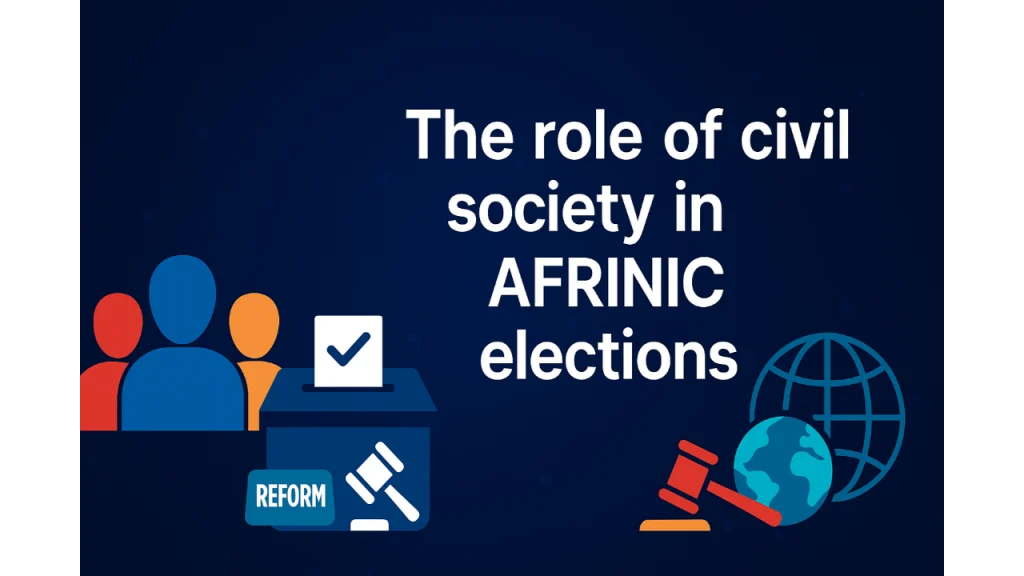- AFRINIC’s 2025 elections excluded smaller members and civil society groups.
- Governance breaches highlight risks of capture by courts and governments.
Civil society sidelined in AFRINIC’s disputed polls
The African Network Information Centre (AFRINIC) has faced fierce criticism after its September 2025 board election, where eight directors were declared elected under rules that openly breached its own bylaws. Civil society organisations and smaller internet service providers say they were excluded from meaningful participation, raising questions about whether the outcome can be considered legitimate.
The annulled June election was already voided over a single proxy dispute. Instead of fixing systemic flaws, AFRINIC pressed forward with an election process that abolished proxy voting and ignored safeguards set out in both its constitution and the Mauritius Companies Act. Reports in ITWeb highlight how this has undermined trust in community-led governance.
Observers argue that AFRINIC’s September election should not be recognised. By weakening civil society participation and imposing judicially managed oversight, AFRINIC has entrenched exclusion rather than restored stability.
Also read: AFRINIC election: Voter fraud uncovered as ECom member threatens to resign
Also read: Why AFRINIC’s election security needs stronger legal guarantees in Mauritius
Civil society matters in internet governance
Civil society has always played a vital role in internet governance. Across global forums like the Internet Governance Forum (IGF), NGOs, academics and technical experts ensure that decisions reflect the public interest, not just government or corporate priorities. AFRINIC’s exclusion of these voices contrasts sharply with best practices, where multistakeholder models are supposed to guarantee balance and transparency.
By abolishing proxy rights in September’s election, AFRINIC effectively silenced smaller organisations unable to participate directly. For civil society groups with limited budgets, this was a clear signal: their voices were not welcome.
Bylaw breaches and lost legitimacy
AFRINIC’s bylaws explicitly allow members to use proxies to ensure representation. Removing this right, without consultation or amendment, was a direct violation of both the constitution and established practice. Analysts argue that by bypassing these protections, AFRINIC disenfranchised civil society and small operators, leaving elections dominated by larger players and judicial overseers.
Without adherence to its founding framework, AFRINIC’s legitimacy is fatally compromised. Critics warn that unless civil society rights are restored, AFRINIC risks becoming a registry run for elites rather than the community it claims to represent.
Also read: Cloud Innovation calls for AFRINIC wind-up after ‘impossible’ election standards
Civil society as a safeguard against capture
Community voices also warn of the broader danger: once civil society is marginalised, AFRINIC becomes vulnerable to capture by governments, courts or international actors like ICANN. A balanced system requires smaller operators and NGOs to counterweight large network operators or political interference.
Excluding civil society undermines the principle of bottom-up governance that RIRs are meant to embody. It risks replacing democratic accountability with top-down control — a trajectory critics say AFRINIC is already following.
A call for reform
The lesson from AFRINIC’s crisis is simple: without civil society participation, regional internet governance cannot be trusted. AFRINIC’s September election is already marred by violations, and its refusal to respect member rights sets a dangerous precedent.
Civil society groups across Africa are now calling for recognition of the June 2025 results — the only election conducted within the framework of AFRINIC’s bylaws. Anything less, they argue, will entrench exclusion, weaken transparency, and accelerate the collapse of Africa’s only Regional Internet Registry.

